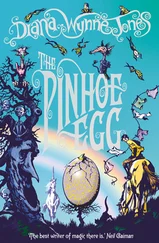He shook his head. ‘It’s so different from the old
ones – literature, philosophy, history, astronomy, mathematics – where it’s clear what they do or at least what the material is they’re working in. Historians try to figure out what happened in the past, and then they try to figure
out why it happened.’ He put his glass between his palms and rubbed it like a lazy Indian making fire. ‘All I can figure out about microbiology is that they look at little growing things. Cells.’
‘And after that?’
‘God knows,’ Brunetti said.
‘What would you study if you had it to do all over? Law again?’
‘For fun or to get a job?’ he asked.
‘Did you study law because you wanted to get a job?’
This time, Brunetti ignored the fact that she had answered a question with a question and said, ‘No. I studied it because it interested me, and then I realized
I wanted to be a policeman.’
‘And if you could study just for fun?’
‘Classics,’ he answered without a moment’s hesitation.
‘And if Raffi chose that?’ she asked.
Brunetti reflected on this for some time. ‘I’d be happy if that’s what he wanted to study. Most of our friends’ kids are unemployed, no matter what degrees they have, so he might as well do it for love as for any job it might get him.’
‘Where would he study?’ she asked, more a mother’s concern than a father’s.
‘Not here.’
‘Here Venice or here Italy?’
‘Here Italy,’ he said, not liking to have to say it, just as she didn’t like to hear it.
They turned and looked at one another, forced to confront this inevitability: kids grow up and kids leave home. If the phone rang after midnight, it would no longer be possible to take it down the hall and look into their rooms to have that immediate, corporeal assurance that they were there. Asleep, awake, reading under the covers with a flashlight; unconscious, sulking, happy or angry: none of this mattered in the face of the certainty that they were safe, at home, there.
What babies parents are. All it took was that ringing sound in the night to freeze their hearts, turn their knees to jelly. It didn’t matter if it turned out to be a drunken friend complaining about his wife or the Questura asking Brunetti to come in because a crime had been committed in the city and he was the man in charge. Even a call that ended with a sincere apology for having dialled a wrong number at that hour had the same battering effect on these hostages to fortune.
What the cost, then, of having one of their children in a foreign city in a foreign country? They were brave people, Guido Brunetti and Paola Falier, and they had often
made fun of the streak of melodrama that ran through the centre of the Italian character, yet here they were, both of them, just one step short of pouring ashes on their heads
at the thought that their son had begun his university career and might someday go off to some other city to study.
Paola suddenly leaned sideways against the arm of her husband. She placed her hand on his thigh. ‘We’ll never stop worrying about them, will we?’ she asked.
‘It wouldn’t be natural if we did,’ Brunetti said, smiling.
‘Is that meant to comfort me?’
‘Probably not,’ Brunetti admitted. Time passed and then he added, ‘It’s the best thing about us, the worrying.’
‘Us two or us humans?’
‘Us humans,’ Brunetti said. ‘Us two, as well.’ Then, because solemnity was not a dress either of them could wear for long, he added, ‘If he decided to become a plumber, he could study here and continue to live at home, you know.’
She leaned forward and picked up the bottle. ‘I think I’ll seek solace here,’ she said, pouring herself another glass.
2
As Brunetti walked to the Questura, he gave no thought to last night’s language game and remained impervious to the crisp autumn day; his mind was taken up with less diverting matters. An email had reached him just as he was leaving his office the previous evening, telling him that his immediate superior, Vice-Questore Giuseppe Patta, wanted to speak to him the following morning. In typical fashion, Patta had given no information about the
topic of their meeting: Patta always liked to have the advantage of surprise, and he believed that not to reveal what he wanted to discuss would assure that. In this he failed to take into account the sense of fair play that lay deep in the heart of his secretary, Signorina Elettra Zorzi, who invariably gave a few minutes’ warning to the person she conducted to her superior’s office.
Brunetti had once commented on this to her, and she had replied that it was no more than telling the Christians in the Colosseo which door the lions were hiding behind.
This morning, it seemed, they were hiding behind the door to the offices of the Vigili Urbani, those unarmed officers whose job it was to see that city ordinances were obeyed. ‘It’s about the pavement in front of that mask shop in Campo San Barnaba,’ she said after she and Brunetti had exchanged polite greetings. ‘There’s been a complaint from one of the other shopkeepers in the campo. They’re paying taxes to put their tables outside and use the space as un plateatico , but the people in the mask shop aren’t, and they insist that there’s only one way that could happen.’
Brunetti often walked through the campo and knew the shop, and as he cast his memory back over the years
he realized that, yes, the pavement in front had, as time passed, been increasingly covered by the amoeba-like extension of the tables on which the Made in China masks were displayed. Because this was a matter that did not concern the police, but only the vigili, Brunetti had ignored it. If paying for the vigili’s blindness was cheaper than paying the tax, what merchant would not opt for it?
‘But why is he concerned about something like that?’ Brunetti asked, indicating Patta’s door with a quick turn of his head.
‘He had a phone call late yesterday afternoon; a few minutes after, he came out and asked me to send you an email.’
‘Who called?’
‘The mayor.’
‘Aha,’ Brunetti said softly.
‘Aha, indeed,’ she echoed.
‘About the shop?’ he asked.
‘I’m working on . . .’ she began and then effortlessly transferred to a much cooler voice to finish the sentence, ‘in his office and waiting for you, Commissario.’
With Patta, Brunetti knew, there existed no lily that was not in need of gilding, and so he said, voice rich with passionate – however false – intensity, ‘I saw his mail a moment ago, so I came down immediately.’
Whereupon the door to Patta’s office was pushed fully open from the inside, and the Vice-Questore appeared. Brunetti often reflected that, in an opera, some sort of trumpet voluntary would sound at the appearance of this man. So handsome, so noble of bearing, so impeccably well dressed: one had no choice but to admire him, much as one would admire a well-wrought urn. Today, in acknowledgement of the approach of cooler weather, Patta wore a grey cashmere suit of such exquisite cut that, had they but known the final destination of their wool, scores of rare and endangered Kashmir goats would have fought to be the first to be shorn. The cotton of his shirt was blindingly white and served to reflect light up towards his still-tanned face.
As sometimes happened to him, Brunetti had to fight down the urge to tell Patta how beautiful he was. Conscious of how fraught his dealings with his superior already were and how prone Patta was to misinterpret what was said to him, Brunetti confined his enthusiasm to a smile and a pleasant ‘Good morning, Vice-Questore.’
Читать дальше












